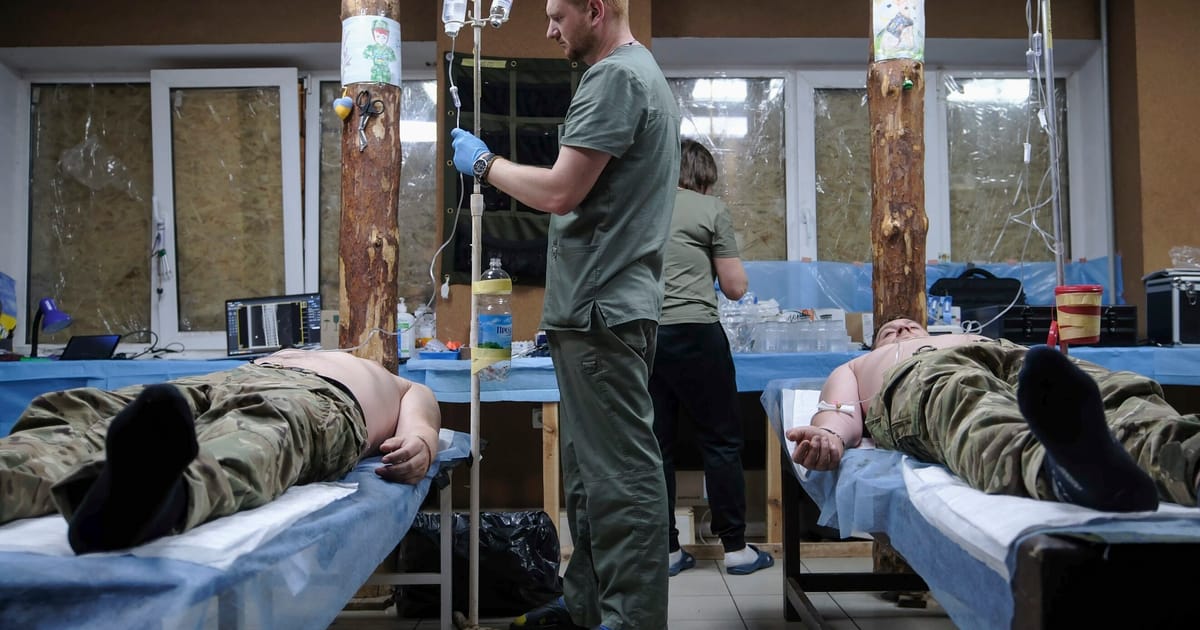

Amidst the ongoing conflict in Ukraine, recent events underline the complex geopolitical landscape that continues to shape the region. With every unfolding episode, there is a deepened understanding of the implications and potentially transformative effects on global diplomacy and security dynamics. This report seeks to provide a calm, comprehensive reflection on the latest occurrences and their broader contexts.
In recent days, there has been heightened attention on Russia’s strategies in the ongoing conflict in Ukraine, particularly concerning the use of banned armaments. European intelligence sources have raised alarms about the Kremlin’s alleged “normalized and widespread” deployment of chemical weapons, painting a concerning picture of escalated tactics. Dutch defense leaders emphasize that this trend is a significant breach of international law, warranting a close examination of its implications for regional stability and security protocols.
In a related development, a massive aerial and drone assault on Kyiv signified one of the most intense campaigns since the conflict began. The assault, following a conversation between leaders of Russia and the United States, included numerous drones and ballistic missiles impacting civilian areas within Ukraine’s capital. Ukrainian President Volodymyr Zelenskyy characterized this as a clear rebuke to diplomatic exchanges and efforts, labeling it a deliberate act of terror aimed at demonstrating Moscow’s interpretation of negotiations and diplomacy.
This recent Ukrainian assault follows a communication between former U.S. President Donald Trump and Russian President Vladimir Putin, which seemingly reaffirmed Moscow’s steadfastness regarding its objectives in Ukraine. Kremlin spokesperson Dmitry Peskov reiterated Russia’s commitment to its goals through military means, albeit expressing a preference for diplomatic resolutions should they become feasible. This stance, entrenched further through public statements, illuminates the challenges faced by international mediators endeavoring towards peaceful solutions.
The political ripples from Russia’s actions extend beyond European borders, with the Taliban in Afghanistan acknowledging Russia’s recognition of their governance as a significant diplomatic step. This recognition marks Russia as the first country to formally recognize the Taliban’s rule since their takeover in 2021. The Taliban government praised this move, highlighting it as a brave decision and illustrating the nuanced geopolitical maneuvers present within global diplomatic landscapes.
As international attention pivots towards strengthening diplomatic relationships and addressing these multifaceted challenges, it becomes imperative for global actors to approach the situation with a balanced perspective. The motives and actions of the involved countries undeniably affect broader geopolitical stability, requiring coordinated international efforts to mitigate the potential for escalated conflict.
In summary, the current events unfolding within Ukraine and across related geographies reflect a period of heightened tension and strategic posturing. The community of nations is urged to maintain a stance rooted in dialogue and diplomacy, seeking resolution to these complex challenges while ensuring adherence to international laws and norms. As developments continue, the global community watches closely, united in the pursuit of a peaceful and stable future for all.
Source: {link}
